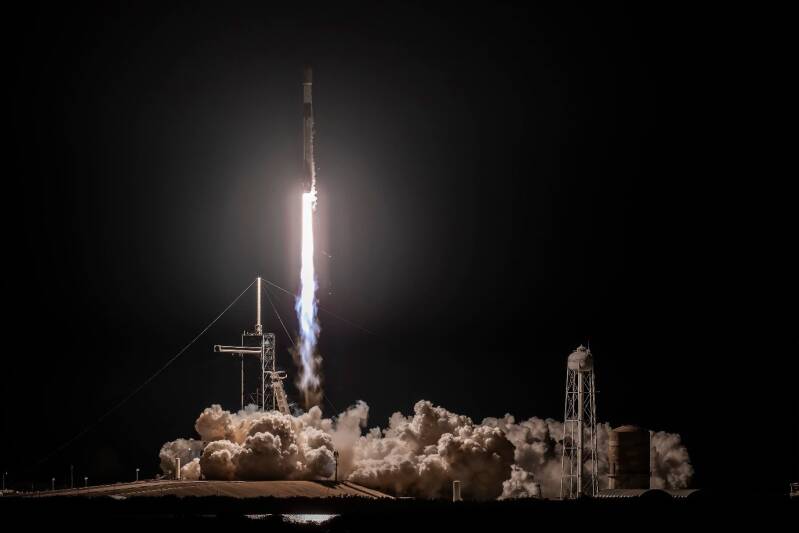In an impressive display of resilience and innovation, SpaceX has successfully addressed the engine leak issue that grounded its Falcon 9 rocket and has resumed launches with remarkable speed by launching its Starlink 10-9 mission on July 26, 2024, at 1:45 a.m. EDT (0545 UTC) from Launch Complex 39A at NASA's Kennedy Space Center. This mission marks the 50th dedicated Starlink launch of 2024, showcasing SpaceX's relentless pursuit of expanding its satellite constellation. The Falcon 9 rocket, which has become a workhorse for SpaceX, lifted off with precision, carrying a payload of 23 Starlink satellites into orbit. The successful launch was followed by a confirmation of payload deployment just over an hour later, marking another milestone in SpaceX's ambitious Starlink program. As per routine, first stage booster landed back on the droneship 'Just Read The Instructions' 8 mins after liftoff.

Falcon 9 blasting off fron from Launch Complex 39A carrying 23 starlink satellites. Image credit: SpaceX
The engine leak, which occurred during a recent Starlink mission, posed a significant challenge for SpaceX. However, the company's prompt response and thorough investigation ensured that the issue was resolved efficiently. By removing the faulty sense line and sensor, implementing design changes, and conducting rigorous testing, SpaceX has restored confidence in its Falcon 9 rocket.
In contrast, other launch providers have faced similar issues, but their response times have been significantly longer. For instance, Arianespace's Ariane 5 rocket experienced a payload fairing issue in 2020, which took several months to resolve. Similarly, United Launch Alliance's (ULA) Atlas V rocket faced a valve issue in 2016, which grounded the vehicle for over a year. Moreover, Rocket Lab's Electron rocket was grounded for over six months due to a fault in its second-stage engine, highlighting the challenges that can arise in the competitive launch market.
SpaceX's rapid return to flight is a clear indication of its innovative approach and ability to adapt quickly to challenges. The company's vertical integration, which allows it to design and manufacture most of its components in-house, has enabled it to respond swiftly to the engine leak issue. This approach has also facilitated the development of new technologies, such as reusable rockets, which have revolutionized the space industry.
Furthermore, SpaceX's commitment to safety is evident in its transparent communication and collaboration with regulatory bodies, such as the Federal Aviation Administration (FAA). The company's willingness to share data and insights has not only ensured the success of its missions but also contributed to the advancement of the space industry as a whole.
As SpaceX continues to push the boundaries of space technology, its competitors are taking notice. Blue Origin, founded by Jeff Bezos, has been working on its New Glenn rocket, but its development has been slower than expected. ULA's Vulcan rocket, which debuted on 8th January of this year is expected to fly for the second time soon as it is required to confirm that the rocket can perform consistently across multiple flights, will likely face intense competition from SpaceX's Falcon 9 and Falcon Heavy rockets. Rocket Lab, on the other hand, was grounded after a major anomaly during its 41st launch. It took more than three weeks for them to resume flight again.
In conclusion, SpaceX's rapid recovery from the engine leak issue is a testament to its exceptional engineering capabilities, innovative approach, and commitment to safety. As the company continues to launch its Falcon 9 rocket with success, it solidifies its position as a leader in the space industry. With its sights set on establishing a human presence on Mars, SpaceX is poised to achieve greatness, and its competitors will need to keep pace to remain relevant.


Add comment
Comments